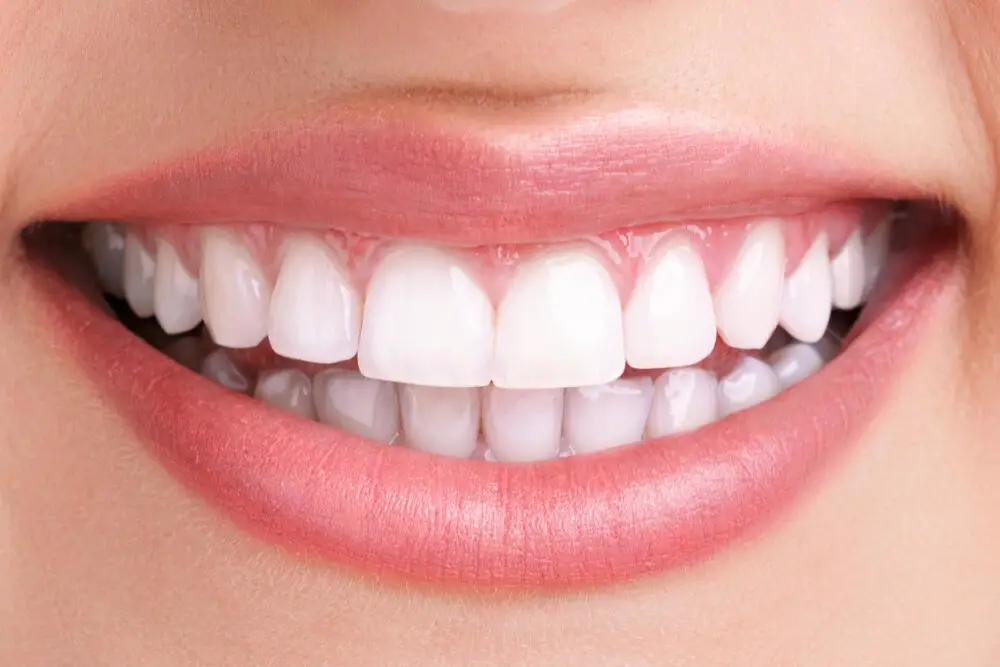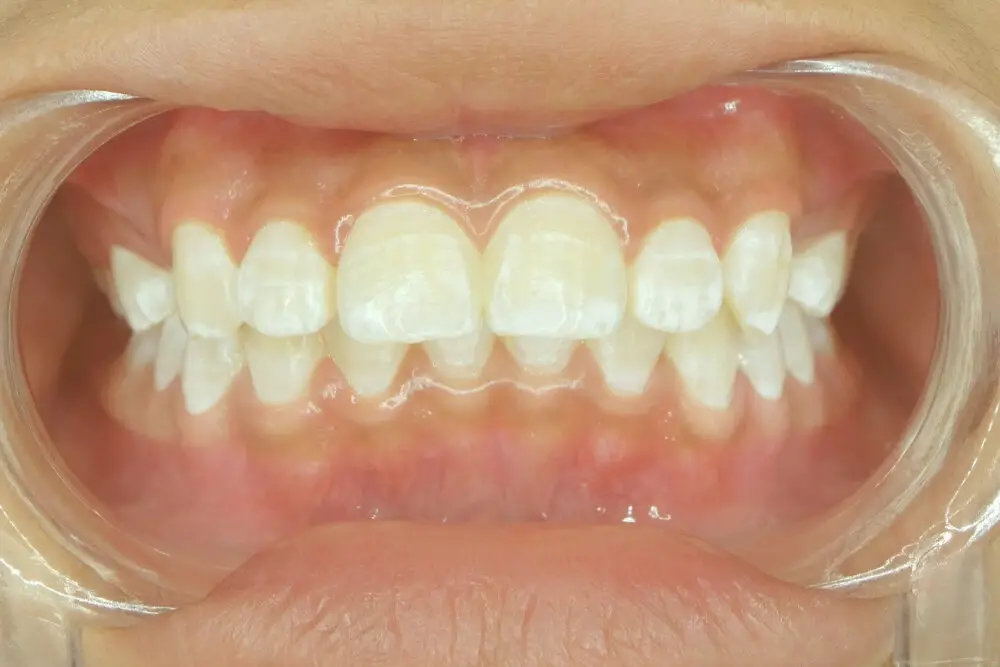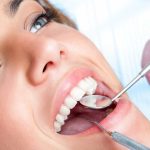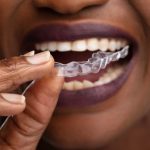Prevent Tooth Decay: Tips to Slow Down Bone Loss in Teeth

Tooth decay is a common dental problem that has affected millions of people worldwide. It is caused by bacteria that produce acid, which eats away the enamel and dentin of the teeth. Tooth decay can lead to severe pain, tooth loss, and other dental complications. However, tooth decay is not the only problem that affects our teeth; bone loss is also a significant concern. Bone loss occurs when the jawbone begins to deteriorate, leading to tooth loss and other dental problems. In this article, we will discuss some tips to prevent tooth decay and slow down bone loss in teeth. Maintaining good oral hygiene is the first and foremost step to prevent tooth decay and bone loss. Brushing your teeth twice a day with fluoride toothpaste helps to remove plaque, which can lead to tooth decay. Flossing between your teeth at least once a day helps to remove food particles and plaque from hard-to-reach areas. Using a mouthwash can also help to prevent tooth decay by killing bacteria and freshening your breath. Additionally, visiting your dentist regularly is crucial to detect any dental problems early and prevent further damage.
Understanding Tooth Decay and Bone Loss in Teeth

Tooth decay and bone loss in teeth are common dental problems that can be caused by several factors, including poor oral hygiene, low calcium intake, and aging. Tooth decay is a gradual process that occurs when bacteria in the mouth produce acid that erodes the tooth enamel, the protective layer covering the tooth. As the enamel wears off, cavities start to form, and if left untreated, they can reach the inner layers of the tooth, causing pain and infection. To prevent tooth decay, it is essential to brush and floss regularly, avoid sugary and acidic foods and drinks, and visit the dentist for checkups and cleanings. Bone loss in teeth, on the other hand, is a more severe condition that affects the supporting structures of the teeth, such as the gums and the jawbone. Bone loss can occur due to various factors, including periodontal disease, osteoporosis, and tooth loss. When the bone around the teeth starts to deteriorate, the teeth become loose, and in severe cases, they may fall out. To prevent bone loss in teeth, it is crucial to maintain good oral hygiene, eat a balanced diet rich in calcium and vitamin D, avoid smoking and excessive alcohol consumption, and seek prompt treatment for any dental problems. In addition, regular exercise and weight-bearing activities can help improve bone density and reduce the risk of bone loss.
Tooth decay, also known as dental caries, is the destruction of the hard tissues of the tooth caused by acid produced by bacteria. The acid gradually dissolves the enamel, the outer layer of the tooth, leading to cavities. If left untreated, the decay can progress to the inner layers of the tooth, causing pain, infection, and even tooth loss. On the other hand, bone loss in teeth, also known as periodontitis, is the destruction of the bone that supports the teeth caused by bacterial infection. The bacteria produce toxins that stimulate the body’s immune response, leading to inflammation and destruction of the bone and gum tissues. If left untreated, bone loss can lead to loosening and eventual loss of the affected teeth. Preventing tooth decay and bone loss is crucial for maintaining good oral health and overall well-being.
Tooth decay and bone loss are two common dental problems that affect millions of people worldwide. The main cause of tooth decay is the buildup of plaque and tartar on the teeth, which leads to the erosion of the enamel and the formation of cavities. Poor dental hygiene, a diet high in sugar and carbohydrates, and certain medical conditions can also contribute to tooth decay. On the other hand, bone loss in teeth is often a result of periodontal disease, an infection that affects the gums and bone structure that supports the teeth. Smoking, poor oral hygiene, and a family history of gum disease can increase the risk of periodontal disease and subsequent bone loss. Regular dental checkups, good oral hygiene, and a balanced diet can help prevent both tooth decay and bone loss in teeth.
Tooth decay and bone loss can have severe consequences on oral health. Tooth decay, also known as dental caries, is a bacterial infection that occurs when plaque builds up on teeth and produces acid that erodes the enamel. This can lead to cavities, tooth sensitivity, and even tooth loss. Bone loss, on the other hand, occurs when the bone supporting the teeth begins to break down, resulting in loose teeth and eventual tooth loss. Additionally, bone loss can affect the appearance of the face, as the jawbone can shrink and cause the cheeks to sag. It is important to take preventive measures, such as proper oral hygiene and regular dental check-ups, to slow down the progression of tooth decay and bone loss and maintain good oral health.
Prevention Strategies for Tooth Decay

Tooth decay is a common dental problem that is caused due to the buildup of bacteria and acid in the mouth. It can lead to tooth loss, pain, and other oral health problems. However, tooth decay is preventable, and there are several strategies that individuals can adopt to slow down the bone loss in teeth. One of the most effective prevention strategies is to maintain good oral hygiene habits. This includes brushing teeth twice a day with fluoride toothpaste, flossing daily, and using an antibacterial mouthwash. These habits help to remove the plaque that builds up on teeth, preventing the formation of cavities and tooth decay. Another strategy to prevent tooth decay is to limit the consumption of sugary and acidic foods and drinks. These foods can increase the acidity levels in the mouth, which can erode the enamel of the teeth and lead to decay. Instead, individuals should choose foods that are rich in calcium and phosphorus, such as dairy products, fruits, and vegetables. These foods help to strengthen the tooth enamel and promote healthy teeth and gums. Additionally, individuals should visit their dentist regularly for check-ups and cleanings. This allows the dentist to identify any oral health problems early on and provide appropriate treatment to prevent further damage to the teeth and gums. By adopting these prevention strategies, individuals can slow down the bone loss in teeth and maintain good oral health for a lifetime.
Practicing good oral hygiene is essential in preventing tooth decay and slowing down bone loss in teeth. Brushing and flossing techniques are crucial in maintaining a healthy mouth. When brushing, use a soft-bristled brush and fluoride toothpaste, and position the brush at a 45-degree angle to the gum line. Brush in a circular motion, making sure to clean all surfaces of the teeth, including the front, back, and chewing surfaces. Flossing should be done at least once a day to remove plaque and food particles from between teeth. Use a gentle back-and-forth motion, curving the floss around each tooth and sliding it under the gum line. Proper brushing and flossing techniques, along with regular dental checkups, can help prevent tooth decay and maintain strong, healthy teeth.
Regular dental checkups and cleanings are crucial in preventing tooth decay and slowing down bone loss in teeth. These routine appointments allow dental professionals to detect any potential dental problems early on, before they progress into more serious issues. During the cleaning portion of the appointment, the dentist or dental hygienist will remove any built-up plaque or tartar, which can contribute to tooth decay and gum disease. In addition, regular checkups provide an opportunity for patients to discuss any concerns they may have about their dental health with their dentist, who can offer guidance on maintaining good oral hygiene habits. By prioritizing regular dental checkups and cleanings, patients can take proactive steps to preserve their oral health and prevent future dental problems.
Fluoride treatments are a preventive measure for tooth decay that can help slow down bone loss in teeth. This mineral is important for dental health because it strengthens the enamel and makes it more resistant to acid attacks from bacteria in plaque. Fluoride can be applied topically through dental products like toothpaste and mouthwash, but professional fluoride treatments at the dentist’s office are the most effective. During the treatment, a concentrated solution of fluoride is applied to the teeth for a few minutes, providing a high dose of the mineral that can help repair and strengthen enamel. Fluoride treatments are safe and can benefit both children and adults, especially those at high risk of tooth decay or with a history of dental problems.
Avoiding sugary and acidic foods and drinks is crucial for preventing tooth decay and slowing down bone loss in teeth. Sugary foods and drinks can cause bacteria to produce acid, which can erode tooth enamel and lead to cavities. Acidic foods and drinks can also damage tooth enamel and cause sensitivity. It is important to limit consumption of sugary and acidic foods and drinks and choose healthier alternatives such as water, milk, and fresh fruits and vegetables. Additionally, it is important to practice good oral hygiene habits such as brushing twice a day, flossing daily, and visiting the dentist regularly to maintain optimal dental health. By avoiding sugary and acidic foods and drinks and practicing good dental hygiene, you can prevent tooth decay and slow down bone loss in teeth.
Prevention Strategies for Bone Loss in Teeth

Preventing bone loss in teeth is crucial for maintaining a healthy smile and preventing tooth decay. There are several strategies you can implement to slow down bone loss in teeth. Firstly, maintaining good oral hygiene is key. Brushing and flossing your teeth twice a day ensures that any food particles and bacteria that can cause gum disease and tooth decay are removed from your mouth. If left untreated, gum disease can cause significant damage to the bones that support your teeth. Therefore, regular dental check-ups and cleanings are also essential to prevent bone loss in teeth. A healthy diet also plays a significant role in preventing bone loss in teeth. Consuming foods that are rich in calcium, such as milk, cheese, and yogurt, can help strengthen the bones that support your teeth. Other foods that are high in vitamins and minerals, such as fruits, vegetables, and lean proteins, can also promote gum health and reduce the risk of bone loss in teeth. Additionally, avoiding sugary and acidic foods and drinks can prevent tooth decay and protect the enamel on your teeth, which helps to maintain the strength of your teeth and the bones that support them. By implementing these prevention strategies, you can slow down bone loss in teeth and maintain a healthy and beautiful smile.
Calcium and vitamin D supplements are essential for maintaining healthy teeth and bones. Calcium is a fundamental component of our teeth and bones, and it is important to have adequate amounts in our diet. However, many people do not consume enough calcium-rich foods, which can lead to bone loss and tooth decay. Vitamin D is also essential for the absorption of calcium, and without it, our bodies cannot effectively use the calcium we consume. Therefore, taking calcium and vitamin D supplements can help prevent bone loss and tooth decay, and ensure that our bodies have the necessary nutrients to maintain optimal oral health.
Regular exercise and physical activity are essential not only for maintaining overall health but also for preventing tooth decay and bone loss in teeth. Engaging in physical activity stimulates blood flow, carrying essential nutrients and oxygen to the bones and teeth, promoting their growth and strength. Exercise also helps to reduce inflammation in the body, which is a leading cause of bone loss. Additionally, physical activity can aid in maintaining a healthy weight, which is crucial for preventing tooth decay and gum disease. Incorporating regular exercise and physical activity into your daily routine can help to slow down bone loss in teeth, improve your overall health, and promote a healthy smile.
Quitting smoking is one of the best things you can do to prevent tooth decay and slow down bone loss in your teeth. Smoking not only stains your teeth and causes bad breath but also affects the health of your teeth and gums. Smoking weakens your immune system, making it harder for your body to fight off infections that can lead to gum disease and tooth decay. In addition, smoking reduces blood flow to the gums, making it harder for them to heal if they become damaged or infected. By quitting smoking, you can improve the health of your teeth and gums, reduce your risk of tooth decay and gum disease, and improve your overall health and well-being.
Maintaining a healthy diet is crucial to prevent tooth decay and slow down bone loss in teeth. Foods that are high in sugar and carbohydrates can lead to the growth of harmful bacteria in the mouth, which can cause cavities and gum disease. Instead, a diet rich in calcium, phosphorus, and vitamin D can help strengthen teeth and bones. Dairy products, leafy greens, and fatty fish are all excellent sources of these nutrients. Additionally, drinking plenty of water can help wash away food particles and keep the mouth hydrated, reducing the risk of decay. By making these dietary changes, individuals can improve their oral health and protect their teeth from damage.
Additional Tips for Maintaining Oral Health

In addition to brushing and flossing regularly, there are several other tips for maintaining good oral health. One of the most important things you can do is watch what you eat and drink. Sugary and acidic foods and beverages can erode tooth enamel and lead to cavities. Try to limit your intake of soda, candy, and other sweets. Instead, opt for healthier snacks like fruits, vegetables, and whole grains. Drinking plenty of water throughout the day can also help wash away food particles and bacteria, keeping your teeth and gums clean and healthy. Another important factor in oral health is regular dental checkups. Even if you brush and floss regularly, there may be underlying issues that only a professional can detect. Dentists can perform deep cleanings, check for cavities, and identify potential problems before they become serious. Additionally, they can provide advice and guidance on how to care for your teeth and gums between visits. By following these additional tips, you can help slow down bone loss in your teeth and maintain good oral health for years to come.
Mouthwash is an essential tool in the fight against tooth decay and bone loss in teeth. Used regularly, it can help to kill harmful bacteria that can cause plaque and gum disease. When selecting a mouthwash, it’s important to look for one with fluoride, which can help to strengthen teeth and prevent decay. Additionally, some mouthwashes also contain antibacterial agents, which can help to further reduce the number of harmful bacteria in the mouth. While mouthwash is not a substitute for brushing and flossing, it can be a valuable addition to your oral hygiene routine. By incorporating mouthwash into your daily routine, you can help to protect your teeth and gums from decay and disease, and maintain healthy bone levels in your teeth.
Chewing sugar-free gum can be a helpful addition to your dental hygiene routine. It can increase saliva production, which helps neutralize acids produced by bacteria in the mouth. Saliva also contains minerals that can help remineralize teeth and prevent decay. Additionally, chewing gum can help dislodge food particles and plaque from hard-to-reach areas of the mouth. However, it is important to choose sugar-free gum as sugary gum can actually contribute to tooth decay. It is also important to note that chewing gum should not replace brushing and flossing, but can be a helpful supplement to a thorough dental hygiene routine.
Drinking plenty of water is essential for maintaining healthy teeth and preventing tooth decay. Water helps to wash away food particles and bacteria that can lead to the formation of plaque and cavities. Additionally, drinking water with fluoride can help to strengthen tooth enamel and protect against decay. It is recommended to drink at least eight glasses of water a day, and even more if you live in a dry climate or are physically active. Staying hydrated also promotes saliva production, which is important for neutralizing acids in the mouth and preventing dry mouth, a condition that can contribute to tooth decay. So, make sure to make drinking plenty of water a habit to keep your teeth healthy and strong.
Teeth grinding, also known as bruxism, can cause significant damage to teeth and lead to bone loss. To prevent teeth grinding, it is important to identify and address any underlying causes, such as stress or anxiety. Additionally, wearing a custom-fitted mouthguard can help protect teeth from grinding during sleep. Maintaining good oral hygiene, including regular dental check-ups and cleanings, can also help prevent tooth decay and bone loss. Avoiding hard or chewy foods and reducing caffeine and alcohol intake can also help alleviate symptoms of teeth grinding.
Tooth decay and bone loss in teeth are two common dental problems that can be prevented with proper oral care. Some strategies to prevent tooth decay include brushing teeth twice a day with fluoride toothpaste, flossing daily, limiting sugary and acidic foods and drinks, and visiting the dentist regularly for cleanings and checkups. To prevent bone loss in teeth, it is important to consume a diet rich in calcium and vitamin D, avoid smoking and excessive alcohol consumption, and engage in weight-bearing exercises. Additionally, individuals with certain medical conditions or taking certain medications may need to take extra precautions to prevent bone loss in teeth, and should consult with their healthcare provider for personalized recommendations. By implementing these preventative strategies, individuals can take steps to maintain optimal dental health and prevent tooth decay and bone loss in teeth.
Maintaining good oral health is crucial for overall well-being. Poor oral hygiene can lead to various dental problems, including tooth decay, gum disease, and bone loss in teeth. Tooth decay occurs when bacteria in the mouth produce acids that erode the tooth enamel, leading to cavities. Gum disease can cause inflammation, bleeding, and even tooth loss. Bone loss in teeth can also occur due to gum disease or osteoporosis, making teeth loose and susceptible to falling out. Regular brushing, flossing, and dental check-ups can help prevent these problems and maintain healthy teeth and gums. A healthy mouth also contributes to better overall health, as poor oral hygiene has been linked to other health issues such as heart disease and diabetes.
Preventing tooth decay and bone loss in teeth is crucial for maintaining a healthy mouth and overall well-being. By taking action now, individuals can avoid painful dental procedures and costly dental bills in the future. Simple steps such as brushing twice a day, flossing regularly, and avoiding sugary foods and drinks can significantly reduce the risk of tooth decay. Additionally, consuming foods rich in calcium and vitamin D, such as dairy products and leafy greens, can help strengthen bones and slow down bone loss. It’s never too late to start taking care of your oral health, and the benefits of doing so are invaluable. So, let’s take action today to prevent tooth decay and bone loss in teeth and maintain a healthy, happy smile.
Conclusion

In conclusion, preventing tooth decay and slowing down bone loss in teeth is crucial for maintaining good oral health. By implementing simple daily practices such as brushing twice a day, flossing regularly, and cutting down on sugary foods and drinks, we can significantly reduce our risk of developing cavities and gum disease. Additionally, scheduling regular check-ups with a dentist and incorporating calcium and vitamin D-rich foods into our diets can help to strengthen our teeth and bones. By taking these preventative measures, we can ensure that our teeth remain healthy and strong for years to come, allowing us to enjoy all the benefits of a beautiful smile and good overall health.






